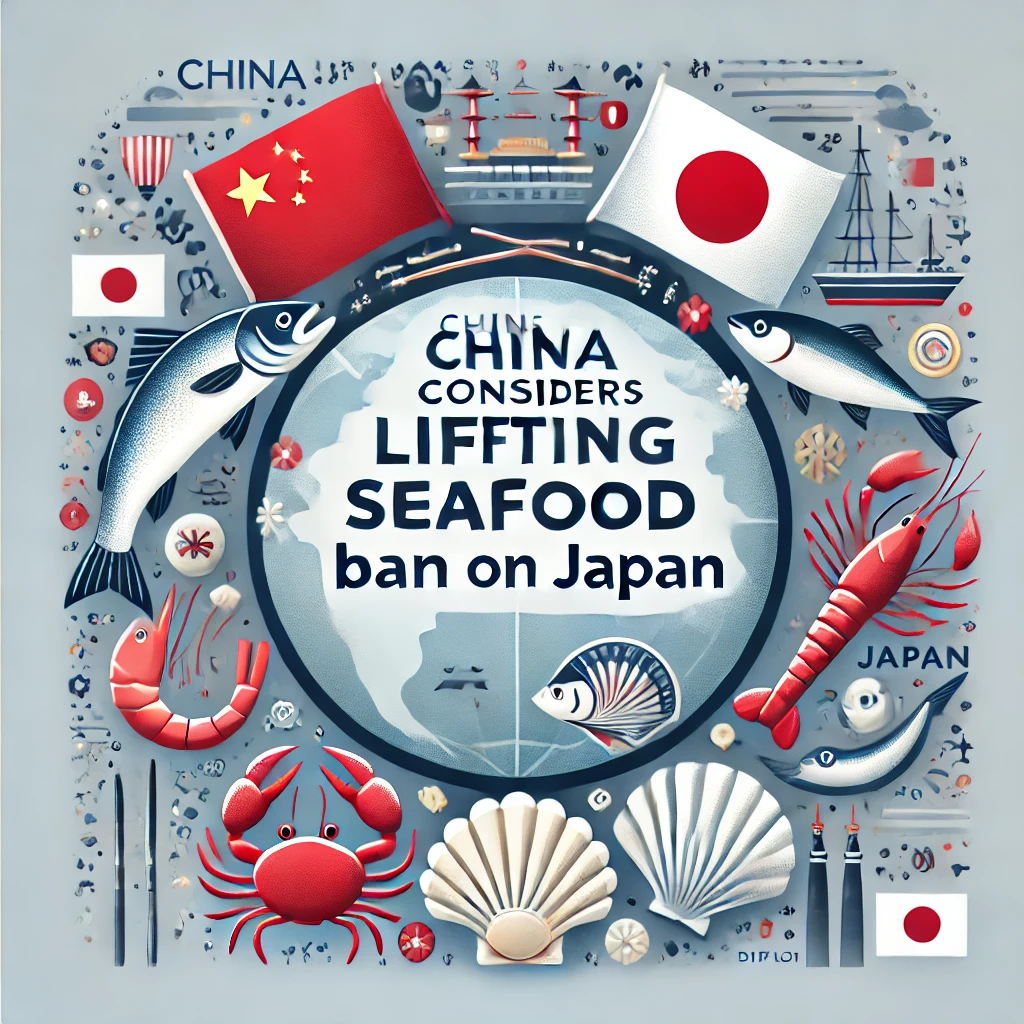December 23, 2024
BEIJING – The Chinese government is reportedly evaluating the possibility of resuming seafood imports from Japan, following a comprehensive analysis of water samples near the Fukushima nuclear plant, which have been deemed safe, according to sources familiar with the matter.
A potential lifting of the import ban could occur as early as the first half of 2025, depending on diplomatic developments and other factors.
Background
China imposed a complete ban on Japanese seafood imports in August 2023 after Japan initiated the release of treated wastewater from the Fukushima nuclear plant into the ocean. Beijing raised concerns about what it described as “nuclear-contaminated water,” despite the International Atomic Energy Agency (IAEA) confirming that the discharge met international safety standards.
In September, Japan and the IAEA agreed to broaden monitoring mechanisms, allowing China to independently sample and analyze treated wastewater. Additionally, both governments reached an understanding that China would gradually resume seafood imports if certain conditions, such as conducting its own tests, were fulfilled.
Steps Toward Resumption
Chinese authorities began collecting and analyzing seawater samples in mid-October at a domestic specialized agency. During a meeting between Japanese Prime Minister Shigeru Ishiba and Chinese President Xi Jinping at the Asia-Pacific Economic Cooperation (APEC) summit in Peru last month, both leaders reaffirmed their commitment to the September agreement.
On December 18, experts from both nations held their third dialogue in Beijing regarding the treated wastewater discharge. A Chinese government source noted that Beijing initiated the session, signaling its interest in resolving the issue diplomatically.
High-Level Diplomatic Visits
Japan is reportedly planning to invite Chinese Premier Li Qiang for a visit in May or June 2025, with Chinese Foreign Minister Wang Yi expected to receive an invitation ahead of this. Beijing appears to be weighing the optimal timing to announce the lifting of the ban, aligning it with these high-level visits to emphasize improved bilateral relations.
Strategic Considerations
China’s shift in stance reflects its recognition of the importance of maintaining strong ties with Japan amid shifting global dynamics. With U.S. President-elect Donald Trump expected to pursue protectionist policies, Beijing sees enhanced relations with export-driven economies like Japan as a way to bolster its own bargaining power on the global stage.
Additionally, China may be seeking to mitigate the strength of the U.S.-Japan alliance or the broader U.S.-Japan-South Korea partnership. Trump’s “America First” rhetoric, including calls for allies to bear greater defense costs, has presented an opportunity for China to adjust its regional strategy.
Potential Challenges
Despite the progress, there are concerns about possible tensions between the two nations in the latter half of 2025. China is set to commemorate the 80th anniversary of its victory over Japan on September 3, an event that could amplify anti-Japanese sentiment if strongly nationalistic themes dominate.
A Chinese government source emphasized the need to strengthen ties before such challenges arise. “We aim to achieve Premier Li’s visit to Japan and the resumption of seafood imports before historical issues strain relations,” the source said.
Outlook
As China and Japan navigate these complex diplomatic waters, the potential resumption of seafood imports signals a cautious but significant step toward strengthening bilateral relations. Both nations appear motivated to collaborate, not only for economic benefits but also to counterbalance shifting global alliances.

